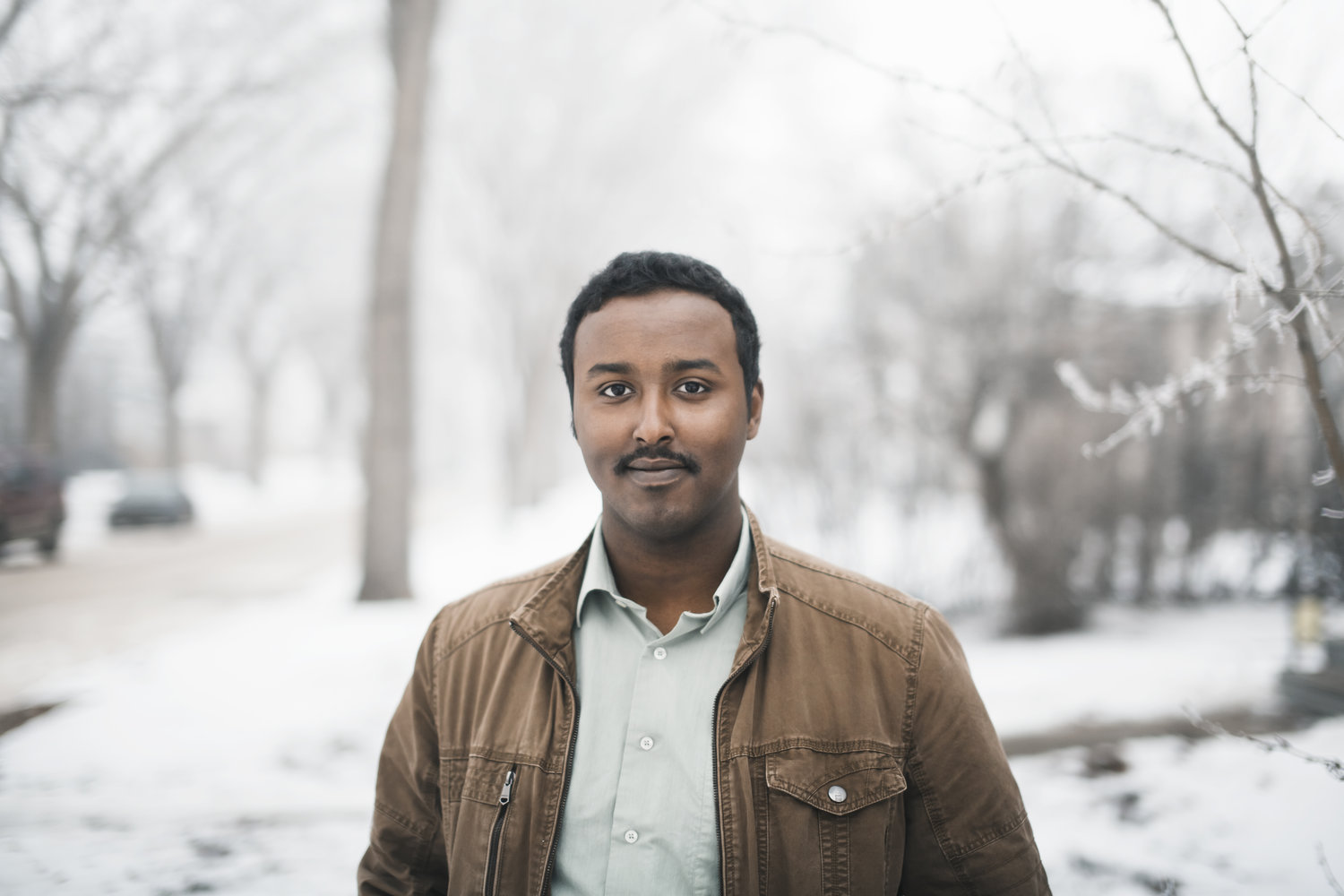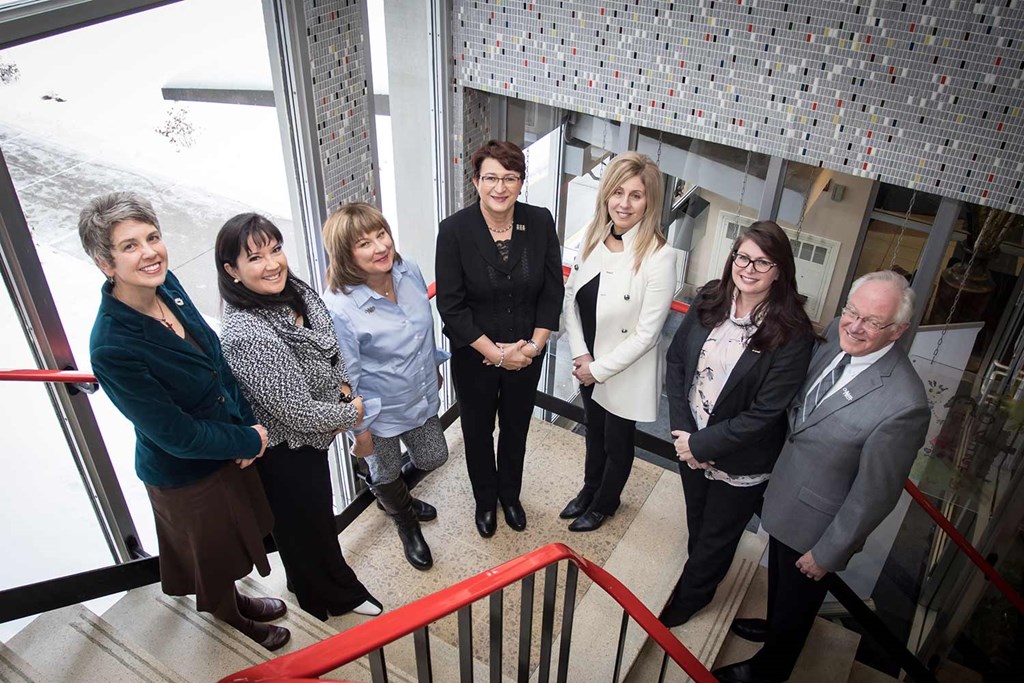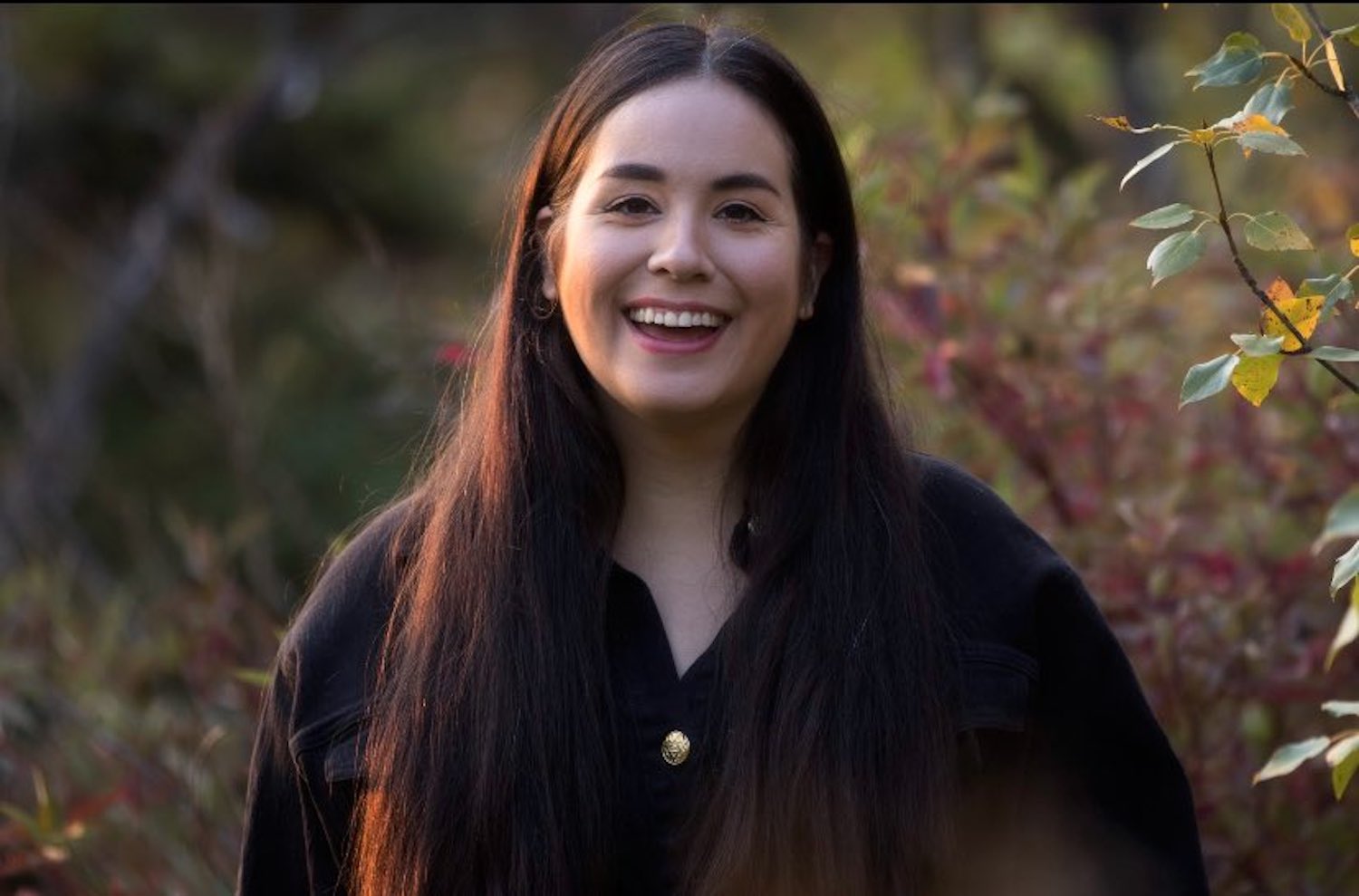An Edmonton writer is threatening to sue Rebel Media for defamation in light of what he describes as “false and misleading” reports about him posted by the right-wing site.
Bashir Mohamed, 24, filed a notice of intent to Rebel through his lawyer Tuesday, stating that in an article and video, Rebel depicted Mohamed “in a highly defamatory, factually untrue, and demeaning manner that has incited violence and death threats.”
The posts, titled, “Somali refugee crashes Catholic School Board meeting, alleging racist dress policy,” are in reference to a local school trustee meeting. Mohamed attended the meeting to silently protest the school board’s refusal to apologize to a Black student who was accused of having gang ties due to his durag, and the board’s subsequent treatment of the student’s mother, who has been banned from school grounds.

The letter demands Rebel remove the posts in question, issue a full retraction and apology, and cover Mohamed’s legal costs of $1,500. It also says any revenue generated from the video should be given to a charity of Mohamed’s choosing.
In a statement to VICE, Rebel founder Ezra Levant declined to comment on the allegations.
“We’ll wait to be served, if indeed we are, and we’ll reply through the courts if a claim proceeds. So far neither of those things have happened,” he said.
Rebel’s story, written by Keean Bexte, claims Mohamed “crashed” a school trustee meeting (which is open to the public) and that he is “always the first to cry ‘racism’."
“Bashir Mohamed is an activist with a bad temper. I have had my own interactions with him, none of them pleasant,” Bexte wrote. He alleges Mohamed pushed him “off the sidewalk, across a bike lane, and into oncoming traffic” during one of their interactions. Mohamed said that statement is not true. A video from the interaction shows Mohamed holding his arm up and telling Bexte to “get the fuck out of here” but does not show him touching him or pushing him near traffic.
The potential lawsuit is the latest development in a controversy that has raised serious concerns about how Black students and families are treated in Edmonton’s publicly-funded Catholic school system and the toll it takes to fight against systemic racism.
On September 12, Emmell Summerville, a student at Christ the King school was reprimanded by his principal Phebe Switzer, who asked him to remove his durag because it has gang affiliations.
Summerville refused. When Summerville’s mother Una Momolu met with the principal to discuss the issue, the principal hit the panic button, putting the school on lockdown and later banned Momolu from school grounds.
“I was really shocked, especially for a school that claims to be so diverse,” Momolu, 26, a community care worker, told VICE. “I was shocked that they would see an 11-year-old boy and assume that a durag equals gangs.”
Lori Nagy, spokeswoman for Edmonton Catholic Schools, said the request “had nothing to do with race.”
Nagy said Momolu was “acting aggressively” during the meeting and that the school community feared for their safety. The school banned Momolu from school grounds for the rest of the school year. However, in Momolu’s recording of the meeting at no point can she be heard screaming or acting aggressively.
As per the recording, Momolu told Switzer “You don’t see an 11-year-old boy and ask him ‘are you affiliated with a gang?’ because of a hair garment,” to which the principal replied, “but there are children that age that are a part of gangs.” The principal also told Switzer, “you’re not going to raise your voice at me."
Momolu said she’s going public because the Catholic school board is gaslighting her.
“Instead of acknowledging any wrongdoing, they painted me as an angry Black woman.”
After the recording was released, the school board apologized for using the term “gang” in reference to the situation but maintained that after the audio recording finished, Momolu’s became more aggressive, resulting in staff “crying” and “fearing for their safety.”
The school board said it has surveillance footage showing that Momolu became aggressive, but has not released it. The board has also claimed that race was never a part of the discussion, even though Momolu clearly stated in the meeting with the principal that she believed her son was being racially profiled.
“We are confident that there was no intention to behave in a racist or discriminatory manner in addressing what was a student conduct matter,” Nagy said.
Summerville has since been moved into a different Catholic school.
Momolu and Mohamed have organized two public rallies to raise awareness around the incidents. They have created a petition demanding the school board apologize for its treatment of Summerville and Momolu, remove the ban placed on Momolu, and review its policies around durags.
But thus far, the school board has refused to meet with Momolu unless it is one-on-one. Momolu wants to meet with Mohamed and a member of the Liberian community present.
Last week, Momolu, Mohamed and others attended the Catholic school board trustee meeting with their petition in hand. They had missed the deadline to present at the meeting.
Mohamed raised a fist in the air in protest as well as the petition. He was asked to leave by security, which was beefed up that night, but refused. Ultimately, the trustees, all of whom appear to be white, decided to adjourn the meeting after calling two recesses.

Mohamed then went on Edmonton radio host Ryan Jesperson’s show to discuss the issue.
But just as they were about to conduct the live interview, Jesperson said Edmonton Catholic schools threatened the station with a lawsuit.
According to a statement issued by Jesperson, a school board spokesperson said that it was likely that they would sue Mohamed for defamation and “if Jesperson brings him on the air providing a platform for further defamation, we will name 630 Ched in the lawsuit.”
Jesperson went through with the interview anyway, and has slammed the school board’s handling of this case, noting that an apology would symbolize “inclusion and acceptance.”
“Instead now you have a board storming out of meetings, refusing to apologize, community members upset, radio stations threatened with lawsuits if they conduct interviews per the norm, and this is a mess for Edmonton Catholic schools. And it’s a mess of their own creation.”
Nagy, of Edmonton Catholic Schools, said the board called the radio station to notify them of “Mr. Mohamed’s history of making defamatory comments about our staff.” She said the board never threatened to sue 630 Ched but that it is reviewing its options regarding taking action against Mohamed.
Mohamed said dealing with the school system has been draining enough, and that he’s now concerned about people making violent comments in response to the Rebel video, including one suggesting he should be shot. There also hasn’t been much national coverage on the story, despite receiving some international attention.
“There are times where I sit down and wonder if it’s worth continuing to push,” Mohamed said.
But he said the way the school board has treated Summerville and Momolu is keeps him motivated to find a solution.
Momolu said the incident has triggered memories of racist attacks she and her brothers have faced about their appearance while living in Alberta. However, she is still hopeful that the saga will end positively.
“I believe in change,” she said. “With the amount of community support, I think something bigger or better will come out of this.”
